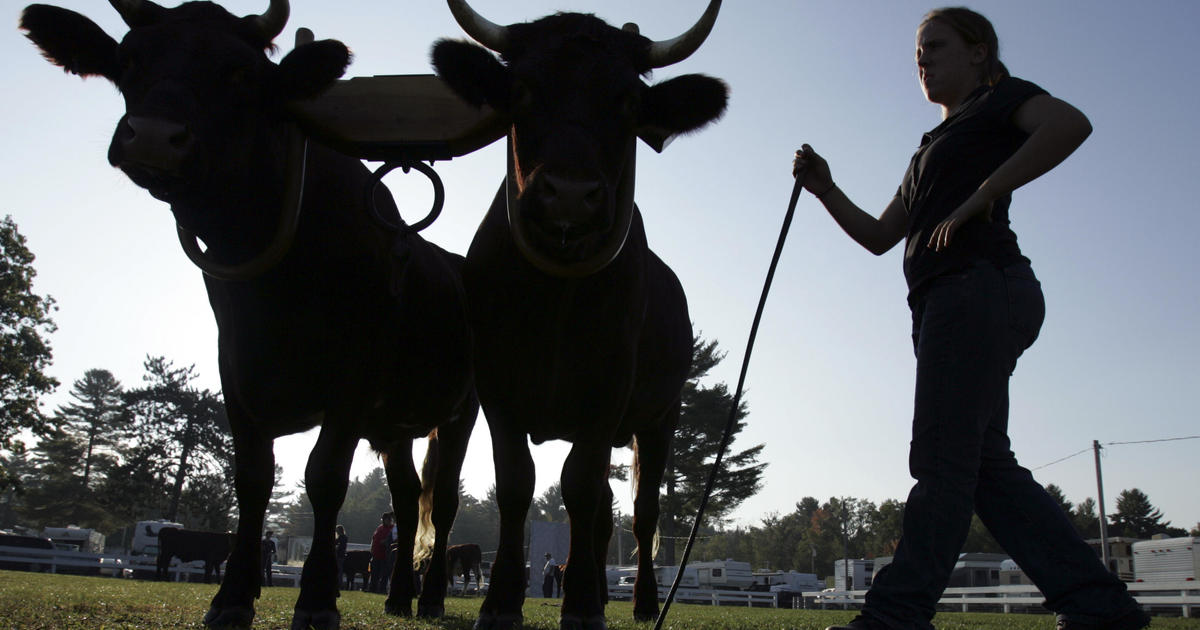There’ll be no crowing this year at Fryeburg Fair’s annual Handsome Rooster contest – a poultry staple of Maine’s largest festival – with participants submitting snapshots online as part of a week-long “virtual fair” on Facebook and Instagram. The Pig Scramble Gamble, Gorgeous Goat competition, and Moo-La-Palooza are also going virtual this October amid the coronavirus pandemic.
March and April saw thousands of “we-regret-to-inform-you” messages on social media about summertime festivals, weddings and camps dotting Maine’s coast and countryside.
“We hope to see you August 4-8, 2021,” a neon blue notice atop the website of Maine’s Annual Lobster Festival flashes. “We hope to see you all next year,” the Machias Blueberry Festival advertises. “Be Well!”
The state was recently reminded of the devastation that can be wrought by the virus. One wedding in rural Maine became a coronavirus “superspreader” event that left seven people dead and 177 infected.
Now, thousands of seasonal workers and artisans are entering their coldest, slowest season without their annual financial safety net, robbed by COVID-19 of a summer’s worth of tourism-driven business.
“That’s how we live,” Sue Johnson sighs. “We get by in the winter and dig ourselves out when the summertime comes. But that hasn’t happened this year.” Johnson and her husband, Richard – both retired high school art teachers – relied on their once bustling ceramics business, Camden Pottery, to get by. The festival circuit used to cover their property tax costs. “We took out a bank loan just in hopes that everything is going to come around,” Johnson continues. “It’s rough,” her voice trails off. “Shoot, it’s hard to even talk about.”
The older couple has teamed up with other local artists to open a gallery in one of Rockland, Maine’s dozen empty storefronts. “We’re trying to find venues to sell our art that don’t involve being around a lot of other people,” Richard Johnson adds, citing health concerns. “In Maine, winters are real hard to get by if you’re self-employed. We take it one day at a time up here.” But online mug sales and small in-person showcases are no match for the high traffic Maine’s summer art fairs bring.
“There’s a lot of mom-and-pop shops without the technical assistance to access customers and markets through the internet,” Dr. Ryan Wallace, director of the Maine Center for Business and Economic Research tells CBS News. “The lack of digital literacy has exacerbated the business challenges, particularly in the rural parts of the state.”
Wallace estimates that Maine seasonal staff – including festivals and summer camps – were reduced by 50-75% in summer months.
Tax revenues from the leisure and hospitality industry dropped sharply in early summer, according to a report released last month by the Maine Revenue Forecasting Committee.
During Maine’s third quarter – the height of the summer tourism season – lodging sales tax receipts are projected to be down by 50% compared to 2019. Prepared food sales, primarily made up by restaurant business, are expected to be off about 30% compared to last year. And Maine hotels remain at half capacity, with occupancy averaging just under 49% in August 2020, down 23% from last year according to STR, a data and consulting firm.
“Then there’s the cost for PPE and hygiene stations,” Wallace said. “It’s been expensive for many businesses to adapt to public health measures. For some, it was enough that they decided not to open.”
But Tim Marshall, owner of a family tent rental business running nearly four decades, did open up, even as weddings, concerts and festivals announced cancellation after cancellation. He stayed open long after the “small [Paycheck Protection Program] well dried up” at the end of summer. Now, Marshall says, his days are filled with sanitizing, skyrocketing the inventory expenses of his already high risk business venture. “Tents, tablecloths, china, linen, every single napkin Everything is cleaned and processed twice.”
And while shrunken wedding parties, universities and restaurants are commissioning tents into late fall, income this year is just a third of his 2019 tent profits. “I think the relief was not targeted to the folks who really needed it,” Marshall said, citing paltry federal payroll assistance. “The hospitality industry really took it on the chin, so did the non-profits.”
Roy Andrews, president of the Fryeburg Fair, says the annual festival received $90,000 in PPP loans – just 7% of their 2019 payroll.
“I don’t expect you and I will ever see normal again,” Andrews groans during a phone interview with CBS News. “Probably won’t recognize it we do see it.” The Maine native has overseen the annual festivities for decades. “Some people are not going to head into large crowds like they used to. I think it’s going to take several years for the fairs and festivals in the country to get back where they were in terms of numbers. I hope I’m wrong.”
This year, the Fryeburg Fair has added one new contest to its list of farm animal showcases and craft competitions. “Best decorated facemask,” Andrews quips. “We know what that’s all about, don’t we?” He pauses for a moment. “It’s new this year. I hope we don’t have it again.”
